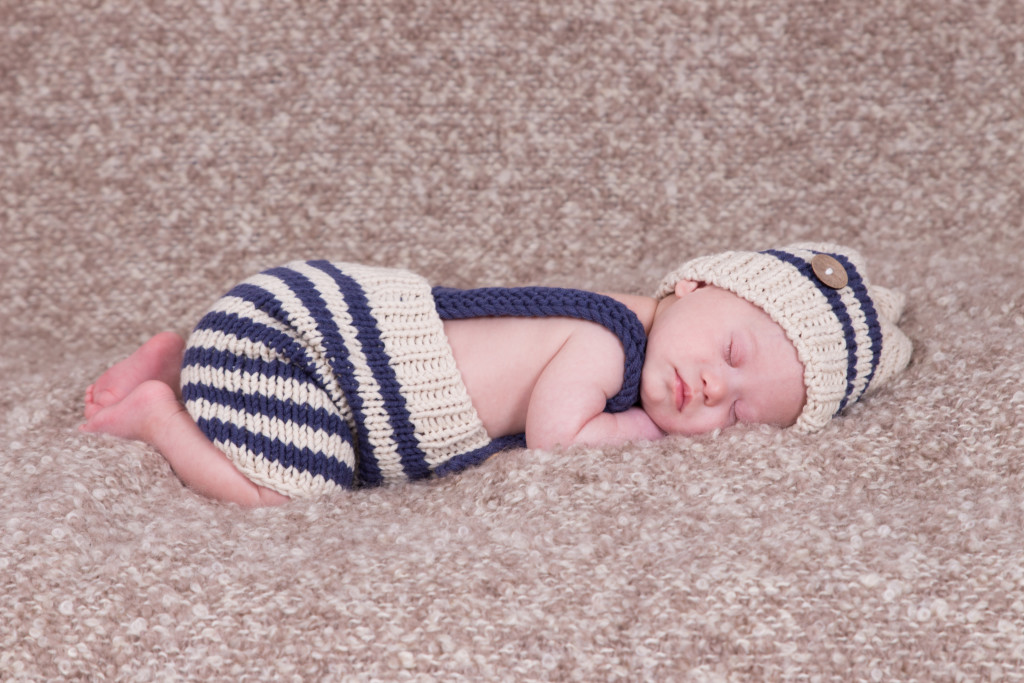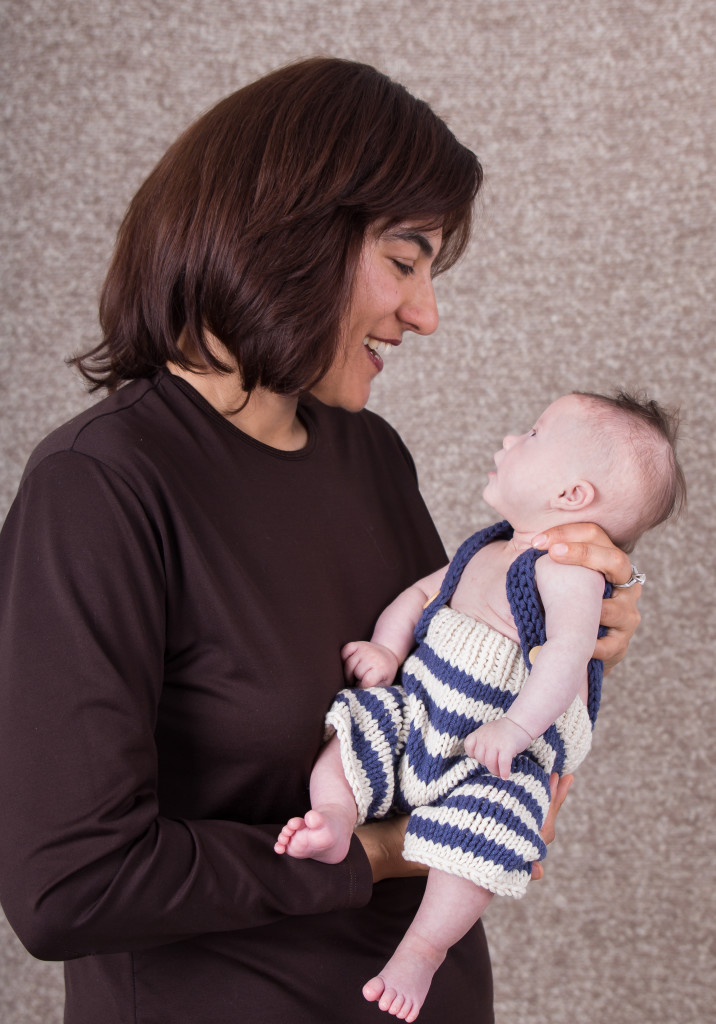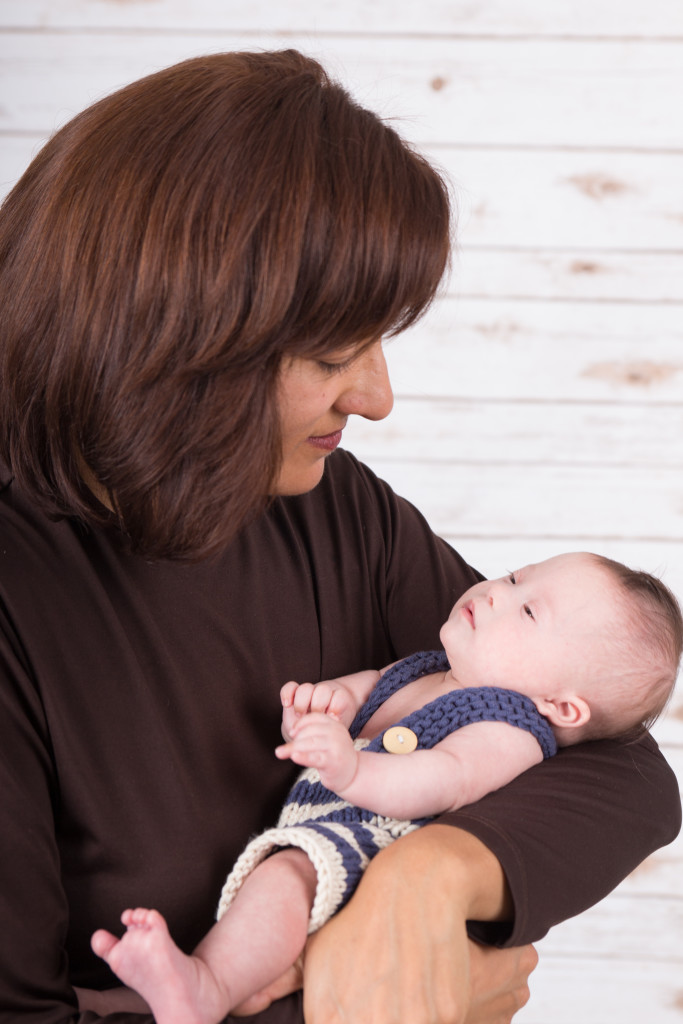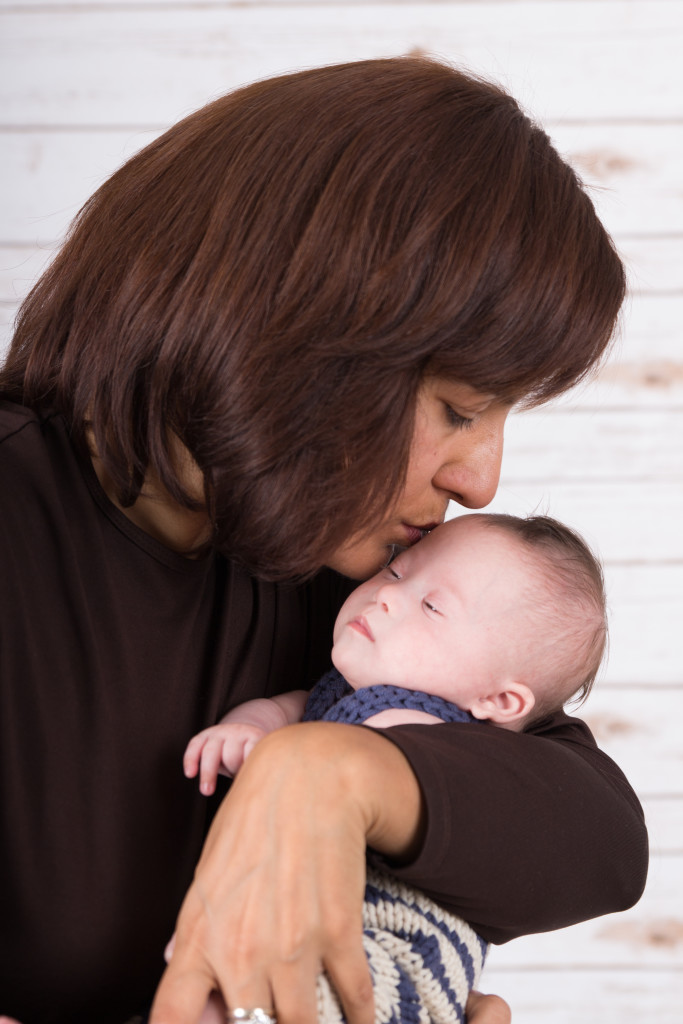Can you believe it’s only been six weeks since R joined our family?!? He so quickly became an integral part of the family that my younger boys told me they can hardly remember him not being part of our lives!

During this period, we’ve constantly been asked (literally in almost every conversation): “Why did you choose foster care rather than adoption?”
The answer is simple, not based on idealism or preferences but need. Here in Israel, babies with Trisomy 21 who are given up aren’t usually available for adoption – they go into the long term foster care system. And so we went where the babies who needed families were.
I have been very pained seeing babies with T21 being given up because of their diagnosis. According to the placement social worker, they are the only children voluntarily given up as newborns – not those with much more complicated medical diagnoses or those with a more limited long term prognosis.

It was a combination of our strong family values and the desire to be part of the solution rather than complaining about the situation that prompted us to begin the qualification process to be foster parents specifically for an infant with T21.
“Practically speaking, what does it mean to foster?”
Our intention is to raise R as a member of our family in every way and unless his foster care status changes, he will be with us until he is an adult (age 21). While in many ways this is very similar to an open adoption- regardless of how we feel or what our intentions are, R is not legally our child.

That means that we will have social workers coming into our home at least monthly to check on him for the next two decades. It means he has a different last name than my other children. It means visits from the birth parents. It means significant decisions for him have to made in conjunction with his birth parents and social workers, and my personal preferences regarding his care can be overridden. (It also means that I needed signed permission before posting any of these pictures!)
Most significantly, if his birth parents were to change their minds they could at any time take him back. Though it’s unusual for children who were given up because of their special needs to later be taken back, it does happen.
I can’t lightly skip over this possibility because it has created a pervasive sense of unease within me that I didn’t anticipate. I’ve shared this feeling with our social worker, and her answer is to sympathize but say, “This is the reality of foster care,” and to remind me that it’s the birth parents’ right to take him back whenever they want.
“Will R be able to be adopted at some point?”
When we were shown R’s file, we were asked if we were willing adopt him if his status changed. We immediately said ‘yes’. However, based on what was explained to us about why and when children are transferred to the adoption track, it seems to me the likelihood of him being placed for adoption is extremely low.
We didn’t go into fostering without a great deal of thought and discussion as a family. We knew there would be challenges and we decided that letting fear of the unknown keep us from offering our home to a child in need wasn’t the right choice.
And though it would be understandable to hold back a tiny piece of one’s heart for self-protection, we’re not letting fear keep us from unreservedly loving our newest addition.
Though the external circumstances aren’t perfectly smooth, we’re so happy and grateful he’s part of our family!
Avivah
**Thank you to the wonderfully talented, patient and sensitive Chani Ceitlin for her photography!**


You are so inspirational. May G-d continue to give you the strength to do all the wonderful things you do.
I still did not understand why the birth family would say they r willing to let him go for foster instead of adoption?
If you get him till age 21 what happens after? The birth family suddenly at 21 wants him back?
Foster care is the option that is offered to the parents in these situations. I highly doubt any family would take a child back once he’s legally an adult!
At age 21, we would still consider him a member of our family and he would be treated accordingly, but in general I assume that there are group homes or institutions where the adults are moved to if they aren’t able to live independently.
aviva, You and your family are beautiful, inside and out!! you are one with baby R.(can we use his name, or not?) on an emotional, spiritual and physical level, as seen thru the pics. may hashem bless you with only nachas, good health , from all your family!
chag kasher vsamaech!
That is so sweet of you to say, Rachelli! I was really hesitating about putting the pictures of me and Rafael up because I’m not thrilled about how I look in them so your kind comment was so appreciated.
Oh, about his name – it was just a feeling I had when writing the post that maybe I should use his initial to be a little more anonymous. I don’t want to do something wrong (that foster parent concern again!) and so I’m taking a more conservative position.
Those eyelashes!!!
He’s gorgeous!! ❤
I agree!
Oh my gosh, he is so beautiful!
I really don’t understand the Israeli system. What is the advantage to not allowing adoption? Does it have anything to do with the way social services funding is distributed? Is it out of concern for potential abuse of the child, where removing from foster care would be easier than removing from an adoptive home?
In the US, it’s the other way around. Adoption is considered the ideal situation, and foster care is the last choice.
Your emunah is truly inspiring. I don’t know how I wouldn’t be a total nervous wreck for the next 21 years! May you, your family, and especially baby R, be blessed for all good things.
I’m obviously just sharing what my understanding is – I’m sure there’s more to it than this – social services doesn’t want to put children with special needs up for adoption because if the parents aren’t adequately prepared to handle it they might not keep the child. With foster care, there’s the support of the social worker and ‘the system’ so they feel that it’s more helpful for parents and children. They understand that it’s in the child’s best interest to stay with one family long term and that’s why they ask potential foster families if they are prepared to adopt and make sure you understand the ideal is for you to raise the child to adulthood.
These pictures are stunning!! You and baby R look right at home with each other!! The photographer did a great job capturing the love. Much nachas from him and from all of your children! Chad kasher v’sameach!
Wonderful and informative article. The pics are filled with love not to mention cuteness…
In your home i have seen the unconditional love he is given by EVERYONE. May Hashem bless Rafi and all of you!
SO sweet! I love these photos and the bond that so clearly exists between you two. Thanks for sharing!
These pics are so beautiful! I love what you wrote about not holding back the love out of fear. May you blessed with all you need to raise this precious little one!
Those photos are amazing. I can see the love shining out of them – on both sides.
SO beautiful! My favorite picture is the first one of you holding him, where he is turning his head to gaze at his new Ima. Thank you for sharing this with us, it is so wonderful to join you on this priceless journey.
beautiful photos, beautiful baby- much much hatzlacha
adorable overalls- any story behind them?
The overalls were one of the photographers props – no story more interesting than that!
(I’ll be in touch with you privately regarding the part of your comment that I edited out.)